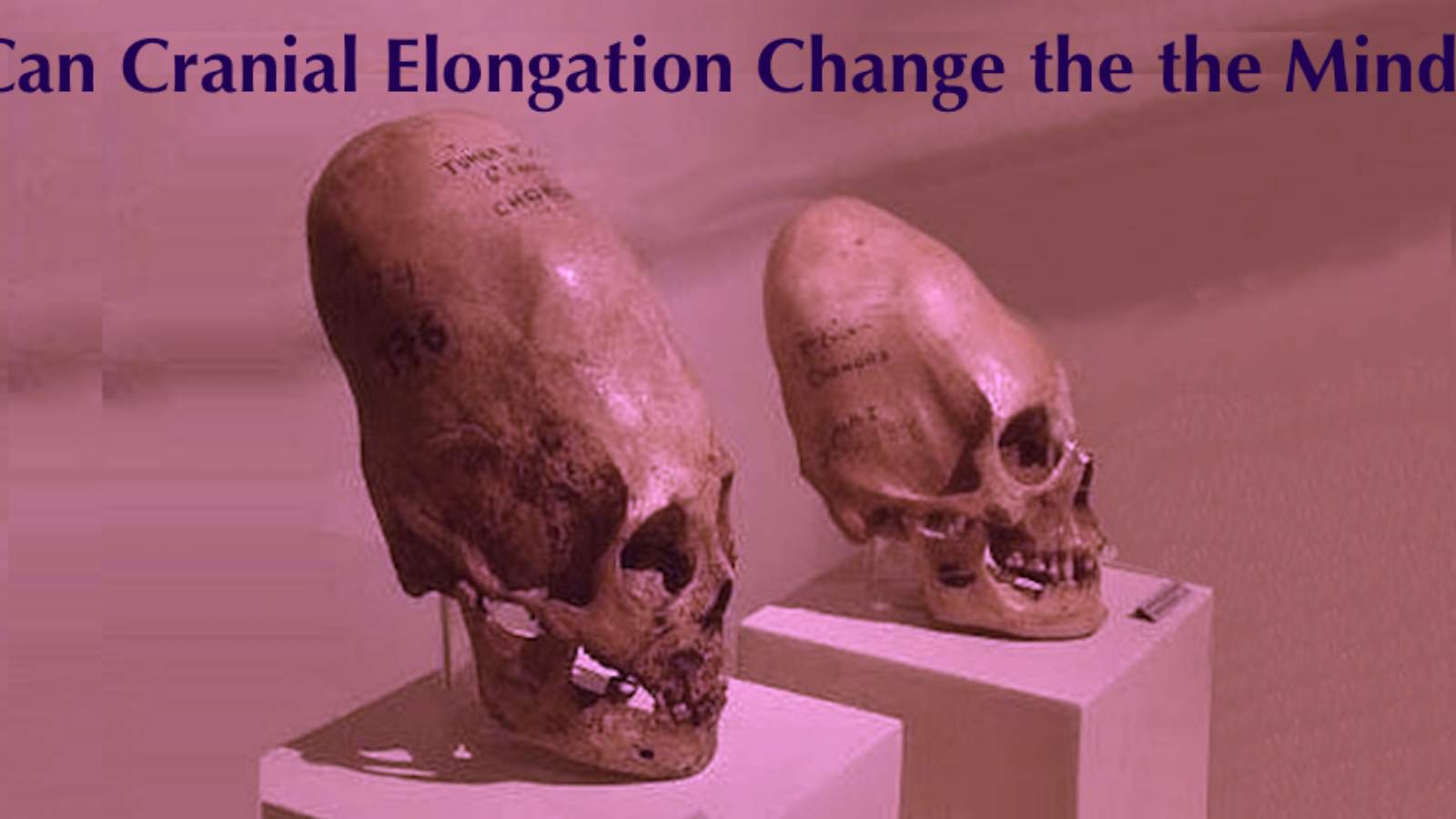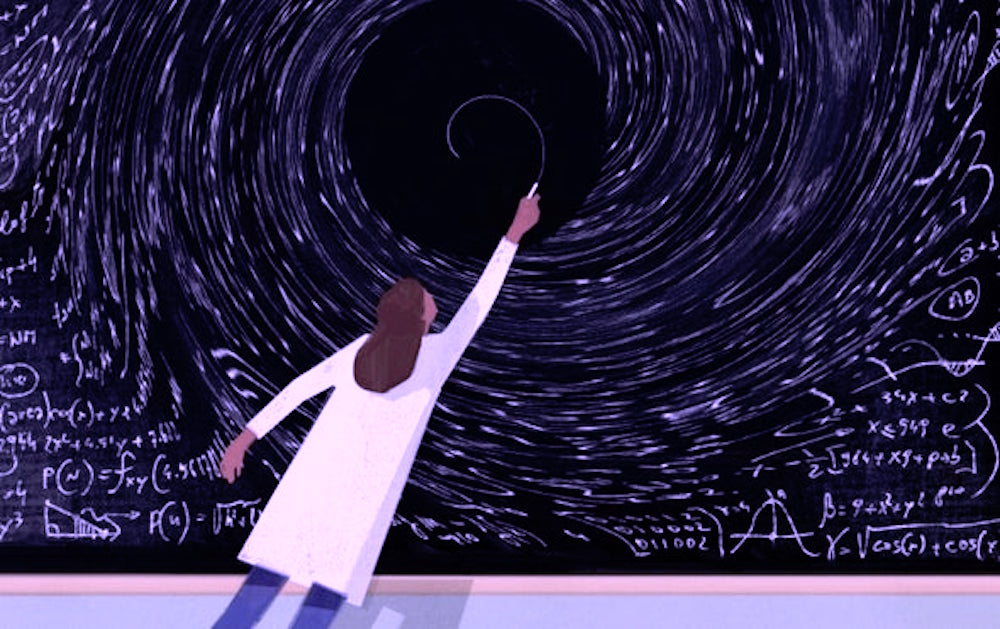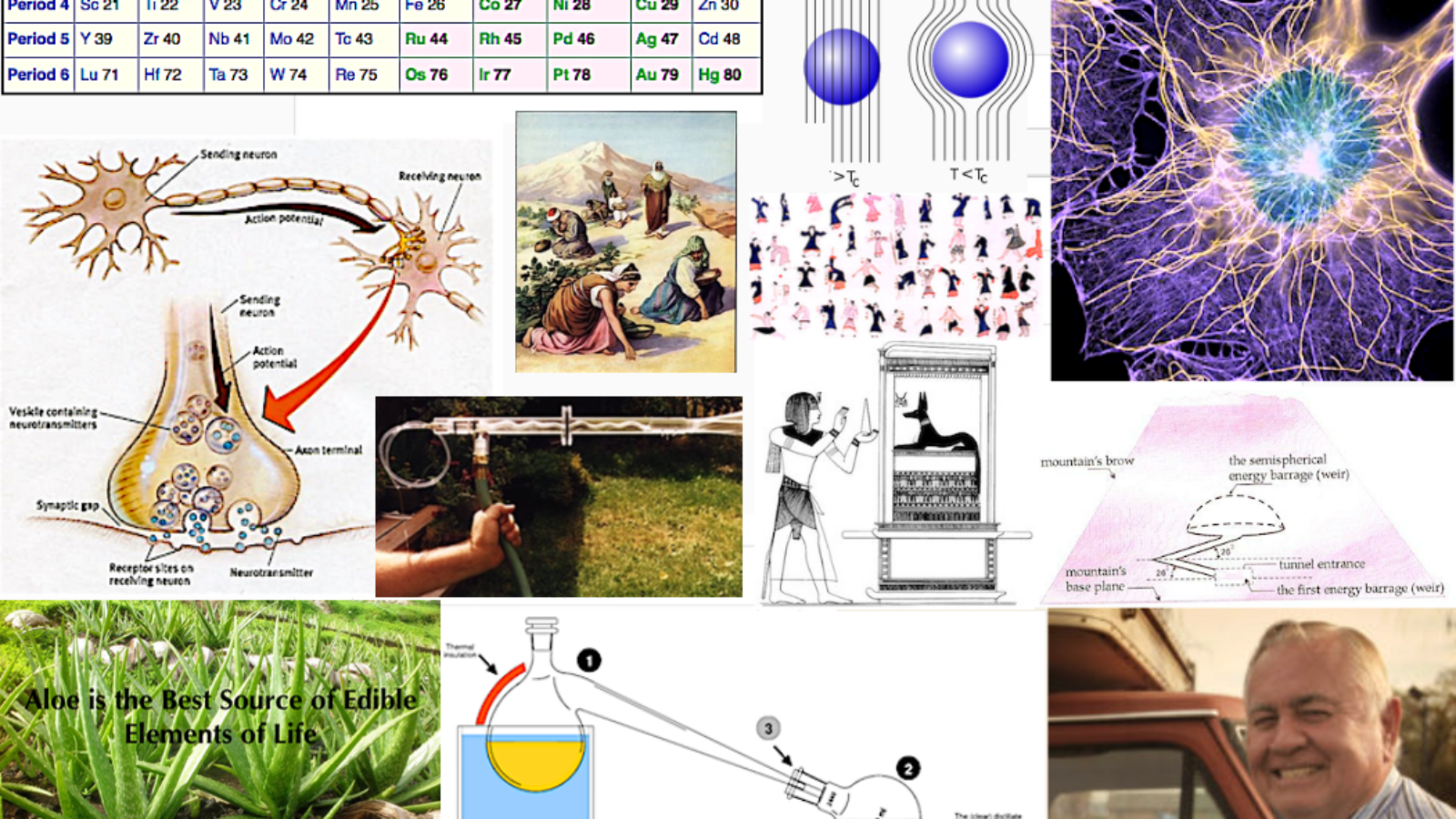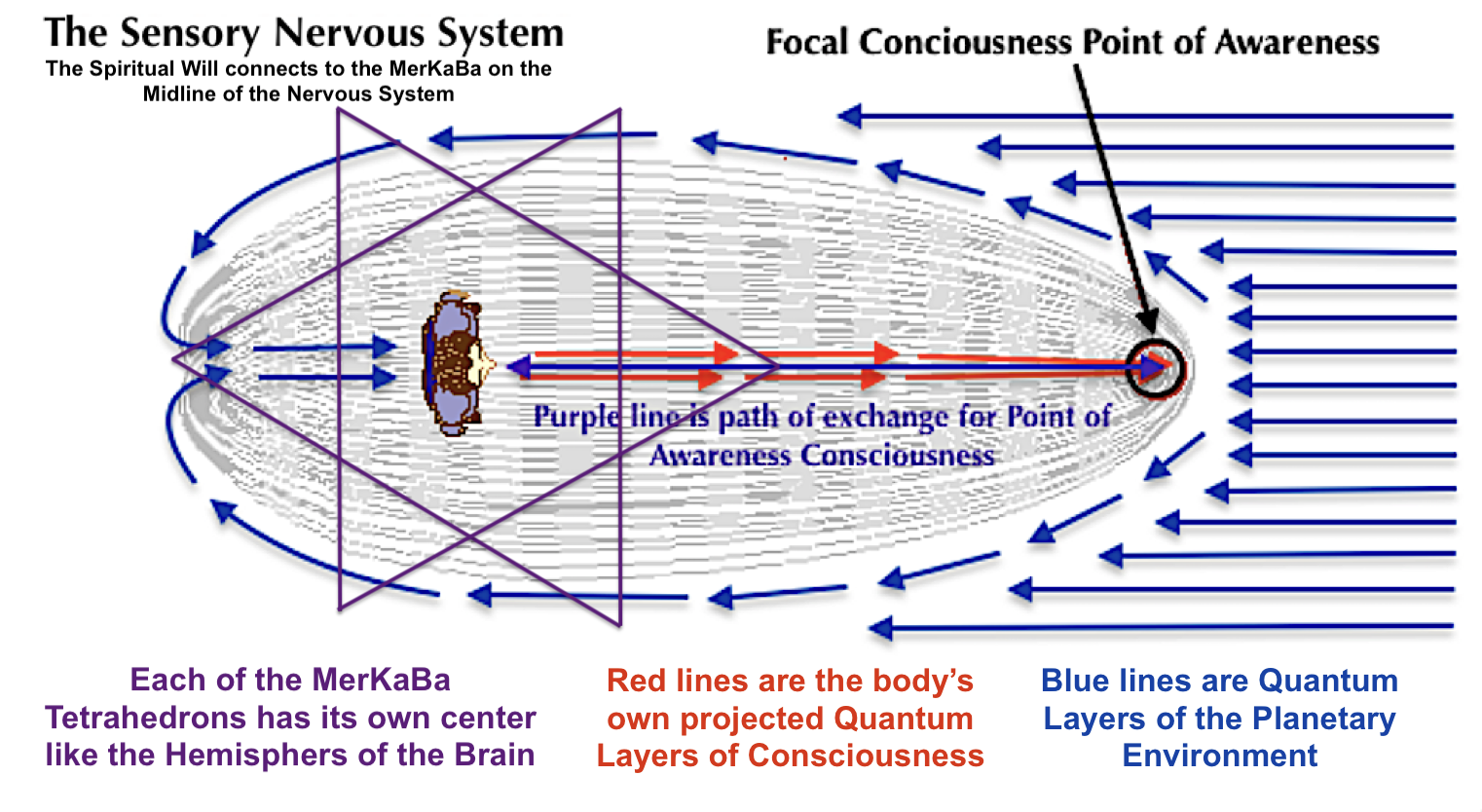Can Cranial Deformation Change the Mind?
Paracas Peru is famous for its ancient cemeteries whose mummies have elongated heads, although these types of skulls are found all over the world. Some are the result of artificial cranial deformation, but others are natural. As expected, the ancient people’s DNA has been tested and found to be different from normal humans, since it was taken from those with distinctly non-human skulls. The many that were found with artificial cranial deformation were thought to have adopted it for cultural reasons, probably for higher social status, but there may be a functional reason as well.
SCIET Theory offers a concept of neurological function based on the interaction of scalar fields generated by all matter, and it suggests that this interaction compounds, or increases in frequency when similar fields are involved. This is a primary component of SCIET Theory. It solves the problem of how different frequent systems mutate into magnitude higher frequencies to enable integration of slightly varying versions of the same information. Stereoscopic vision is the the best example in which two inputs become one vision. Conceptually this means that the third field created is functionally able to combine both lower field inputs into a single one that possesses information from both. In stereoscopic vision the objective is to provide depth of field knowledge and adjust placement in the environment.
In the case of the brain and how it works to model the environment, the idea builds on the duality of the nervous system inputs to each hemisphere of the brain. Restating the above, using this theory, the dual inputs create a set of interactive fields whose combination results in a third one that is a multiple of the two original fields.

This image from the Museum in Paracas Puru shows a natural dolichocephalic skull on the left and an artificial cranial deformed one on the right
This approach is controversial because the ability of the scalar fields to compound into higher frequencies is not tested, primarily because it is generated at very low power and in frequencies that are not electromagnetic in nature. Evolved from the fields created by Platinum Group elements in the high spin state in the cells and synaptic gaps, they are referred to as Meissner Fields. They are the result of room temperature superconductivity at the elemental level compounded throughout the entire body. We can surmise that the fields exist because of the volume of these elements found in the body, and there is no other explanation for their presence.
Brain Lateralization
These fields are intrinsic to the operation of the nervous system, and by the structure and arrangement of the inputs and the parts of the brain we can model their size and location. Assuming that the nervous system is built up from these fields and that it evolved in their presence, the role of the brain in synthesizing the frequencies of consciousness becomes clear using SCIET Theory.

The etheric fields surrounding the body are emanated by the cells. The midline of the body defines a natural pattern of interaction with the material and living environment because the cells are both matter and etheric. The movement over the surface generates flow from the center around both sides and combines with the sensory centers of the brain to generate opposing polarities that synthesize or balance to generate a mid-point field that is a magnitude faster and finer than the two that created it. This is the Focal Consciousness Field.
The mechanism for compounding the fields is called the mid-point field in SCIET Theory, it is basic to all compound interactions in nature beginning with the formation of atoms, and in the brain it is generated by simultaneous inputs to each brain half by the sensory nervous system. The inputs firing simultaneously on opposite sides of the brain stimulate the creation of a third field that is a compound of both sides.
The body moves through the environment, which is an ocean of these scalar fields created by the planets multi-billion year journey through space. In addition to the built up spherical fields, the volume of molecular matter is structured by the layers of memory fields around the planet created by the rotation and resonance with all other moving fields. This is illustrated in the above graphic.
Stereoscopic vision is an example. Examining this idea, a researcher is struck by the fact that the primary region where the mid-points must be located in an empty space between the two hemispheres. These four cavities are referred to as the ventricles, and they are filled with cerebral spinal fluid. Based on this we can propose that the midpoint interaction of the hemispheric fields does not require neuronal network to function, because it operates at frequencies unrelated to the cellular tissue.
Returning to the distribution of sensory regions in the brain, the mirroring is not exact between the two halves and this suggests that there may be distinct frequency sets involved with each hemisphere. Hemispheric specialization, or lateralization is well known in popular culture with each side of the brain being responsible for different types of mental processing.
We now know that the default communication between cells in the body is based on light. Photonics communication is observed in the body and in the brain as well. So the specialization to process sound to manage speech is an addition to what is needed for normal survival by people. It may also suggest that speech itself is the result of an epigenetic adjustment by humanity that dramatically increased the availability of dopamine.
Dopamine Increases
Brain lateralization creates special areas on both sides of the brain dedicated to certain functions, with a particular emphasis in humans on speech and language, along with dominance of one side for the expression of the will. These features in humans rely on an enhanced use of dopamine. Its increased availability is due to adaptations related verbal language and vocabulary, and does not depend on specialized brain centers. Broccas region in humans is pivotal to speech, but in other primates it functions with much simpler sounds such as the variable screeches of a monkey. Apparently its role is not governed by its physiology but by the other features of the brain such as the availability of neurotransmitters and the scalar fields with which it stores information. If it is damaged the ability to manage those factors is limited or destroyed.
The senses input similar information along pathways to each side of the body and this causes a polarity imbalance that stimulates an electrical discharge between the sides of the brain. This discharge serves multiple functions since it is affecting both the nervous tissue and the field they generate. One function is to drive the formation of synaptic connections between the brain halves, creating the corpus callosum, and the other is to fix the recall of the immaterial scalar field associated with the experience that created the neuronal connection.
The process of thinking involves left-right discharge related to both visual and verbal inputs, apparently stimulating synaptogenesis, the synaptic formations created by sensory nervous system in response experience. Verbal in particular has evolved specific areas of the brain to handle sounds. It can be argued that the default processing of the brain is based on light, so the visual processing is inherent to the brain, while speech is a later add-on in human development.
Changing the availability of certain neurotransmitters may be a key adaptation to enable increased verbal abilities. Dopamine levels are shown to be pivotal to properly functioning linear or verbal processing in humans, at the same time the lack of it contributes to enhanced visual or spacial processing.
With the addition of enhanced dopamine in humans, the likelyhood that the left-right hemispheric specialization has given rise to different forms of processing on each side of the brain has increased. The ability to make voluntary choices to move the body is clearly shown to be related to dopamine.
Studies show that dopamine drives left-hemispheric lateralization of neural networks during human speech. How dopamine does this is shown to not be dependent on physical pathways, so the field interactions working with dopamine levels can be surmised to be related to electrical activity observed between the hemispheres during voluntary actions. This research supports the idea that hemispheric lateralization is related to the increase of dopamine levels.
In another article, Mission to Earth, I discuss the idea that humans were using a form of telepathy enabled by the global resonant temple complex until the end of the third millennium BC when the Temple were destroyed by global storms. What is inferred by this is that during the period following that disaster humanity was forced to depend on spoken language entirely and this required a lot more dopamine for the brain to manage speech. This could only happen with adaptations to the epigenetic markers in the genes. More than a thousand years pass before humanity demonstrates the quality of self-awareness according to Julian Jaynes in his Bicameral Brain theory, it is said to be capacity for introspection and the ability to recognize oneself as separate from the environment. According to Jaynes Bicameral Brain theory humans began to have this ability around 1000 BCE, so it took more than a thousand years after the Confusion of Tongues for humanity to develop this ability. This is probably forty or more generations. Dopamine is a key adaptation for modern man, because its increased presence does not need to be supported by DNA, but can be based on epigenetic coding instead.
How brain lateralization is affected by different shapes of the skull is not obvious, but research on the history of cultures that were predominantly dolichocephalic or long skulled, indicates that they were much less aggressive than their round skulled counterparts. In fact most of the ancient populations with long heads were matrilineal Goddess worshipers and their communities ended when round head invaders murdered them and heaped their bones into their homes and burned them. Understanding how being long headed predisposes an individual to be gentler and more philosophic is an important question.
The Resonant Cavity of the Skull
This article is focused on examining the consequences of changes to physiology of the brain and the resonant cavity of the skull. The reported changes in personality in individuals who have undergone cranial deformation to elongate their skulls are related to being more calm and thoughtful.

This comparison of a dolichocephalic individual with a normal human is proportional to the location of the facial features
The efforts of the brain to harmonize its charge state and use this to drive the sorting, analysis and storing of experience using fields makes sense, as does the layout of opposing sensory centers.
The graphic on the right was done to compare the physiology of the face and skull of both a long headed and round headed individual, with both aligned eye-to-eye, nose-to-nose and chin-to-chin the comparison reveals that dolichocephalic individual’s longer and narrower skull extended the brain backward significantly with the same volume of brain mass. This is an example of a cranial deformed normal human whose skull has been compressed with a clamping device during the first four years of growth. The result changes the shape of the brain as well as the skull, making the brain hemispheres closer together, shortening the distance across the ventricles and lengthening the sensory input regions within the brain. If the skull were a musical instrument, it would definitely make a different sound, and in this context the resonance of mental processes.

The ventricles are filled with fluid and are where the midpoint field centers during sensory input discharge.
The efforts of the brain to harmonize its charge state and use this to drive the sorting, analysis and storing of experience using fields makes sense, as does the left-right discharge between related neural inputs. In this context it would be natural to assume that there would be an optimum brain shape and layout of opposing sensory centers.
This is where the challenge of understanding the mental effects of cranial deformation begins. The main issue concerns the effect of narrowing the ventricles between the brain halves and moving the sensory centers of the brain closer to one another. Doing this makes the left-right electrical discharge travel a shorter distance and the scalar fields generated compound differently. The migration of axon and dendrites between the brain halves is shorter and this also makes the corpus callosum longer during it development as well. The inputs must be the same, so the only difference is in the generated fields proximity to one another and the resulting mid-point values.

The proportional difference in the length of the brain is obvious in the illustration above. The dolocephalic brain is about twenty percent longer in this image.
Modeling the visual focus field of the brain depends on the eye sensory centers located between the ears and occipital regions of the brain at the back of the head. Clearly this is affected by narrowing the head which increases the distance to the visual imaging area. In SCIET this is used for projecting the Point of Awareness and intention.
Another concept in SCIET Theory that is related is the awareness of time and future potentials present in every action, which may be interpreted as a spiritual quality. Lengthening the visual field increases the awareness of the environment while enhancing peripheral vision. Since sensory fields and their processes overlap within the brain, all are affected by the physiological change. We can only guess how it impacts the physical, mental, emotional and spiritual components of the personality.
Archeological Evidence

These long head skulls are from Malta, where they ae stored in a basement room. This photo was taken in the seventies and is one of the rare images of the Malta long headed people who were found stuffed into The Hypogeum of Hal Saflieni sanctuary.
We find that during the third millennium there were a wave of barbarous invasions into the area where many dolichocephalic populations lived in Europe and the Mediterranean. In Malta the long headed people were found in The Hypogeum of Hal Saflieni stacked to the ceiling, their bodies apparently interred without ceremony by invaders intent on eliminating them and their Goddess worshiping culture.
This is seen in communities in ancient England as well, where the villages were attacked and the residents stacked in their long houses like bags of potatoes with evidence of violent death. It may have been a type of religious conflict driven by orders from the leaders of the attackers. It seems similar to the circumstances of the the Israelite attacks on Cannan, which were directed to eliminate hybrid humans and replace them with pure humans. Certainly it can be assumed that the long headed people were genetically different from he round headed people, whether the long heads were a pure genetic strain or mixed would have made no difference to a group intent on wiping that race from the face of the Earth.

This is the skull of a woman from Romania who died in Bavaria in the sixth century AD
Whether it is myth or fact, we have heard that the disaster of 9400 BC was engineered to eliminate what was considered a contaminated genome from the planet. We know that those efforts were not entirely successful, and that many areas on the surface escaped devastation, Whatever populations lived there continued to proliferate and stories like the one from the Bible about attacking Canaan and killing every living thing suggest that genetic contamination had to be a factor in this attitude.
In modern times the effort to eliminate the long heads continues in the form of denying the existence of the skulls throughout Europe and the Americas. Only since the Internet came into existence has this embargo on information been broken. Museums have consistently hidden the long skulls, storing them away from public view. Recent finds in Puru and the resulting publicity have avoided this fate and we now know that these skulls are from a people with a different DNA than normal humans.
For example, in many areas of the world, the custom of cranial deformation was practiced until those who did so were forced to stop by religious or political authorities. The practice seems strange to modern people, but apparently it served some purpose to those doing it. Of course it happened beginning shortly after birth, so however it started, the ones whose heads were deformed knew nothing about how it would be without it.
Culture of Long Heads
We do know a few things about the long headed people, where they lived and when. Some populations like the ones in Peru continued up to the time of William the Conqueror in isolated regions on the Southern coast of Peru, and their influence continued to inspire some tribal peoples to use head binding to lengthen their skulls.
A population that practiced cranial deformation, the Nahai-speaking area of Tomman Island and the south south-western Malakulan (Australasia), believe that a person with an elongated head is more intelligent, of higher status, and closer to the world of the spirits.[28]
Channeled Insights
Long Skulls in Egypt were found in the same burial areas as the aristocracy of Egypt and seem to be considered the Priest class of that society. In this channeled insight posted here, Elizabeth Haich explains the view of the Pharaoh on the differences between long heads and round heads.

Elisabeth Haich was a spiritual teacher and author of several books dedicated to spiritual subjects. The below quote is from her best known book, Initiation, Haich describes early experiences of her life in Hungary, as well as details of her past life during which she was initiated by her uncle, Ptahhotep, in ancient Egypt. In the following chapter of this book she describes why some people in the Egyptian aristocracy had elongated heads, and where their race came from.
Ever since my childhood father has been accustomed to my questions, and he now answers me as patiently as ever: ‘You have a mirror, and you have seen your head in this mirror, haven’t you?’ ‘Yes, Father, I see my head every day when Menu does my hair.’ ‘And what have you noticed?’ asks father. ‘That I have a much longer head than the sons of men in general. But you too, and Ptahhotep and most of the people in our race—the Sons of God, as people call us—have the same longer head form. It’s noticeable even in spite of the kerchief or head-gear or ornaments the person might be wearing. How is it, Father? Why is the shape of our heads different from that of the heads of the sons of men?’
Right now we are living in such a period of transition in which changes are noticeable. One of these phenomena is evident in the fact that various races of people with roundish skulls are led and governed by rulers who are spiritually greatly superior to them and who are even different from them physically. They have a more graceful figure and an elongated cranium.
Those of us who have this elongated skull make relatively little use of our intellects because we are able to experience truth directly with our inner sight. Our forehead is not heavily arched, because in our heads the brain centres having to do with the power of thinking are only developed to the point necessary for us to perceive and consciously experience external impressions. On the contrary, in the rear part of our cranium we possess fully developed brain centres, the physical instruments of spiritual revelation. These brain centres enable us to be conscious on the divine plane and give us those superior qualities and characteristics which distinguish us from the sons of men. Human beings, in their consciousness, live in time and space. We, although we too inhabit earthly bodies, enjoy the perfect spiritual freedom, in freedom from time and space. Through the power of the divine consciousness and with the help of these brain centres, we are able to move freely in time and space. ‘This means that we are able to shift our consciousness into the past or into the future at will. In other words, we are able to experience the past and the future as present. And with the same ease we can free ourselves from the hindrance of space and move our consciousness to any place we wish. In this condition there is no “here” and no “there”, but only omnipresence. For past and future—here and there—are only different aspects, different projections of the one and only reality, the eternal omnipresent Being: GOD.
It is interesting that it mentions the idea that the fore brain used by modern humans to recall our experiences and plan activities is mentioned as being unnecessary to the “Sons of God” because they use the fully developed brains centers of spiritual revelation in the back of the head. These ideas are consistent with what would be expected by lengthening the skull, but we cannot address how a naturally evolved Long Head was like, we are only looking at why normal humans would opt to narrow the skulls of their infant children. There must have been perceived advantages, and it may have involved being more spiritual and even the ability to communicate telepathically with others having the same type of skull as mentioned in the quote above.
Long Heads and SCIET Summary
In popular literature and on the Internet, what is referred to as Long Heads is of two types in the modern era of archeology, natural long heads and cranial deformed long heads. This article addresses the second type as a means to examine the effects of narrowing the skull of a normal human being.
The practice of artificial cranial deformation was widely practices until it was forbidden by colonial invaders in the last 400 hundred years. In some tribes on islands and the interior of the continents it may continue today. Although it was frowned upon by churches and authorities because it represented an older culture, there was no practical reason for banning it, unless it was considered abusive to the child. This may well have been the reason cited by the colonials.
What is obvious is that those practicing cranial deformation did it for a reason, and what is reported about those so affected, is that they were more spiritual and wiser in their reactions to others.
Brain cavity analysis of those born normal and artificially deformed shows that their brain processes were different because of it. Illustrated above is an increase on the length of the brain by 20 percent, making their visual fields subject to the influence of other regions of the brain during processing. Whether or not this made them wiser or more philosophical is not known, but that is the character reported by the historical information available today.
The history of long headed people from the archeological record indicates that the naturally long headed were not war like, being Goddess worshippers within a matrilineal society. These people lived everywhere on the planet and that until the third millennium they prospered throughout the Mediterranean, Indus Valley and Europe, at which time invading tribes of patrilineal people engaged in a campaign of genocide against them. We know that the Celts and Aryans both committed genocide against the long headed people, but there is no explanation for why.
One idea that comes forward now is derived from research related to the influence of off world beings. It appears that the long headed beings were a hybrid of the off world culture, and that the round headed ones were the intended “inheritors of the Earth”, an idea, that if true would suggest that the round heads, the humans, were instructed by their “Gods”to exterminate them and eliminate their genes from the planet. Research on the DNA of the Paracas long heads has established that they are not “homo sapiens” but another variety of human entirely.
The Sumerian tablets tell that a great flood was called for by one of the Sumerian Gods, and that it caused humanity to be pushed to the brink of extinction, necessitating intervention by introducing genetically adapted cereal crops and domesticated animals. The cataclysm must have so damaged the environment that they could no longer forage for food successfully.
What we learned from the research is that long headedness made people more gentle, thoughtful, philosophical and peaceful. Unfortunately this made them easy targets for violent invaders who used this quality against them in their invasions.
It may have been that the natural long heads had a marked advantage over the humans in terms of mental abilities. They may have been able to communicate telepathically, overwhelm the self control of normal humans and other capabilities that we would consider paranormal. Some of the skulls in Paracas are so different, with such larger brain cavities that suggesting they could do more seems logical.
What the natural long heads were like in terms of their culture can only be surmised from the archeological record in places like Paracas Peru, where large cemetery sites have been excavated during the last fifty years. While many cultures bury people with weapons, these are conspicuously missing from the funerary sites. Jewelry, woven cloth and personal items dominate their grave goods. The end of their culture along the coast of Peru did not indicate a violent end. Whether a calamity like a tidal wave or an epidemic was responsible is unknown, but if this did happen it is very likely that afterward the remaining people continued until the last one died or moved to another known society.
Dane Arr
July 12, 2019





















 We know that stars and other astronomical bodies throughout the Galaxies compress matter and shoot out highly pressurized jets of gasses into space, and it is assumed that it is these gas jets that generate Tachyons. We cannot go to those locations and be sure that this is true, but the theoretical nature of these particles can only have one explanation and the gas jets are it. The mechanical force needed to make them superconductive is certainly there and there may even be enough force to make them permanently activated, and in this state they possess the ability to “quantum tunnel”, which correlates to the ability to create their own interdimensional portal, moving from one material location to another without traveling across the space between. They can appear wherever the proper frequency value exists in a material location regardless of where they were formed or existed previously. They is the most activated of the Elements of Life, and their presence around living bodies has an energizing effect on the Elements of Life within those bodies.
We know that stars and other astronomical bodies throughout the Galaxies compress matter and shoot out highly pressurized jets of gasses into space, and it is assumed that it is these gas jets that generate Tachyons. We cannot go to those locations and be sure that this is true, but the theoretical nature of these particles can only have one explanation and the gas jets are it. The mechanical force needed to make them superconductive is certainly there and there may even be enough force to make them permanently activated, and in this state they possess the ability to “quantum tunnel”, which correlates to the ability to create their own interdimensional portal, moving from one material location to another without traveling across the space between. They can appear wherever the proper frequency value exists in a material location regardless of where they were formed or existed previously. They is the most activated of the Elements of Life, and their presence around living bodies has an energizing effect on the Elements of Life within those bodies.
































